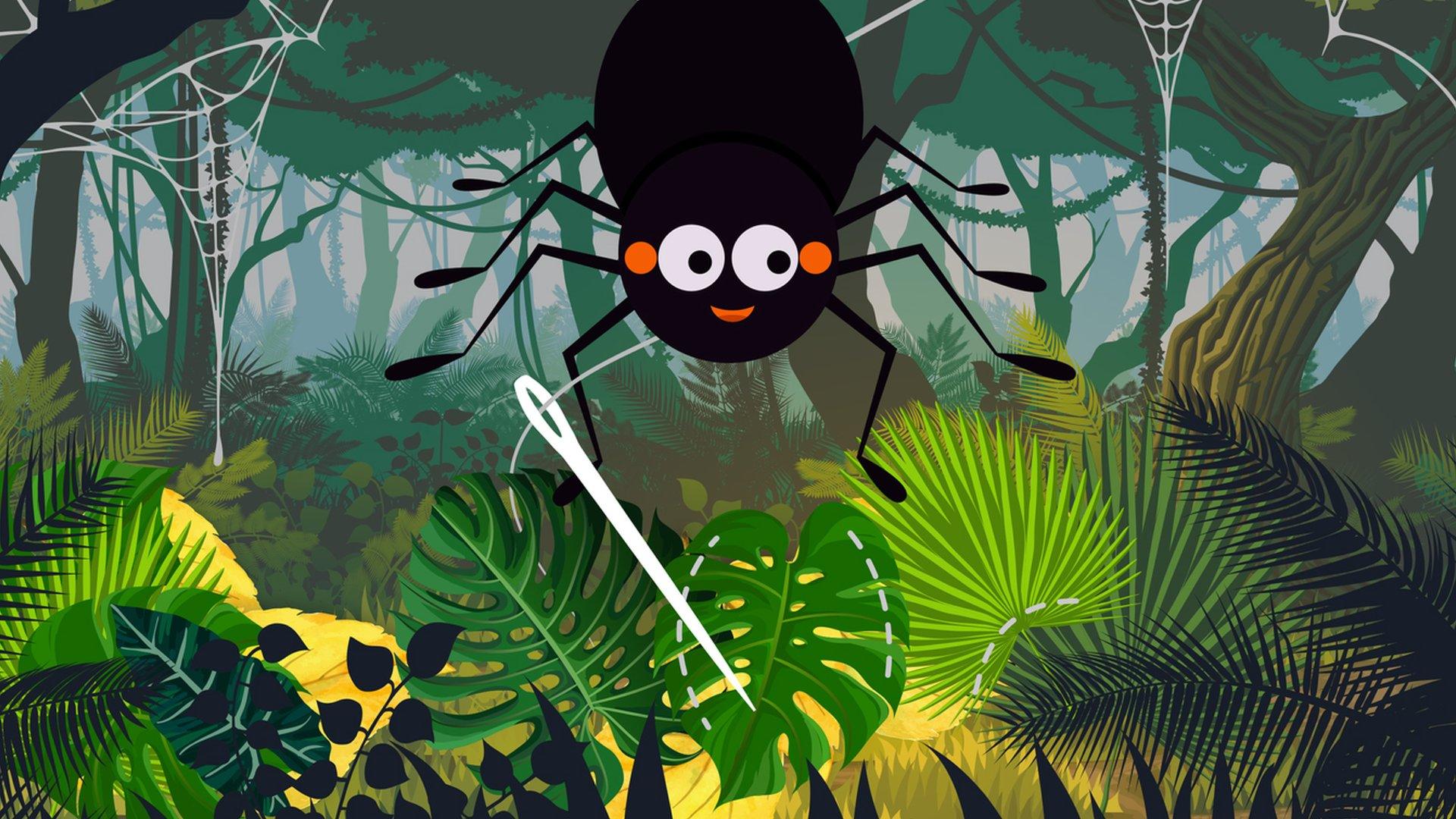Spiders using webs to block out loud noises
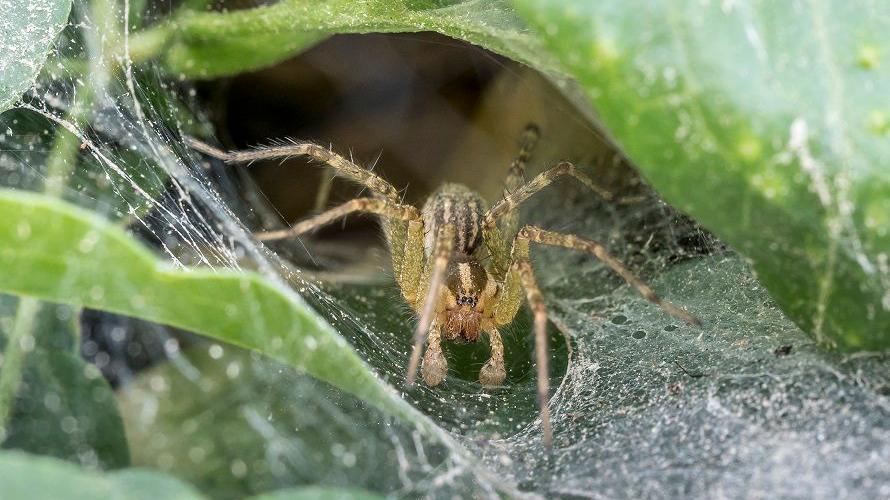
"Can you keep the noise down, please?"
- Published
Some of you probably aren't fans of spiders, but it turns out our eight-legged friends aren't the biggest fans of us either - well at least some of the noise we make.
Their webs, which you might dust away when helping out with the cleaning, aren't just used as somewhere to hang our and catch food, according to a new study.
Researchers at the University of Nebraska-Lincoln in the United States found that some spiders are also using webs to filter out noise pollution, like the kind made by traffic or building works.
Doing so helps spiders to receive signals which are very important for their survival.
Stick around for more spider stories!
- Published25 September 2023
- Published8 April 2022
- Published2 July 2021
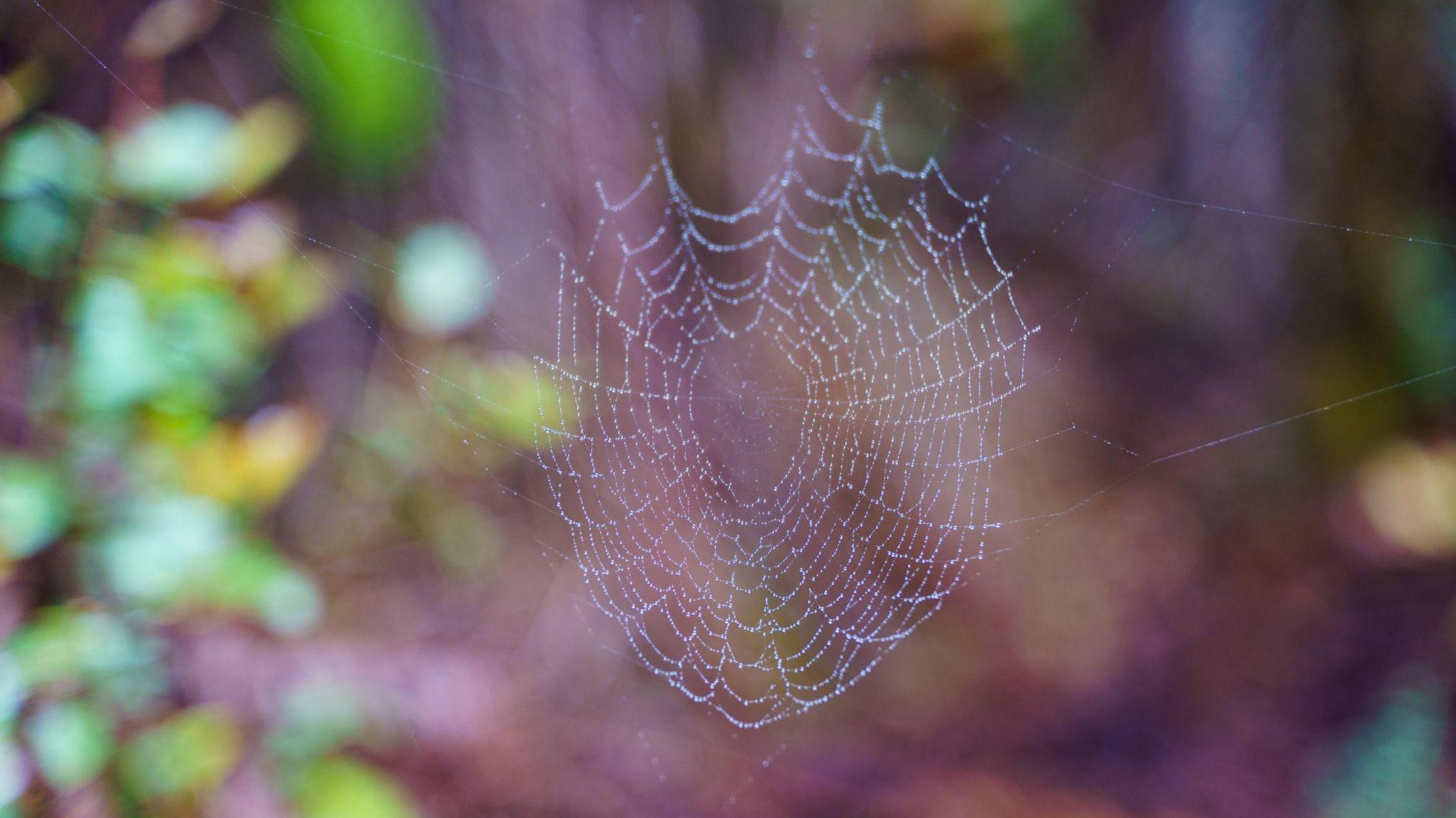
In the study, published in Current Biology, the team observed 60 Agelenopsis pennsylvanica or Pennsylvania funnel-web spiders as part of the study - some from urban areas and some from rural.
The spiders made their webs inside two different environments - one which was quiet and one which was a bit noisy.
The researchers then tested the webs that had been created to see how sound travelled across them.
They found that urban spiders were able to produce webs which reduced the amount of vibrations they received, meaning they could hear noises they need, like those made by their prey.
Whereas those made by rural spiders amplified all noises - like when we turn our TV up!
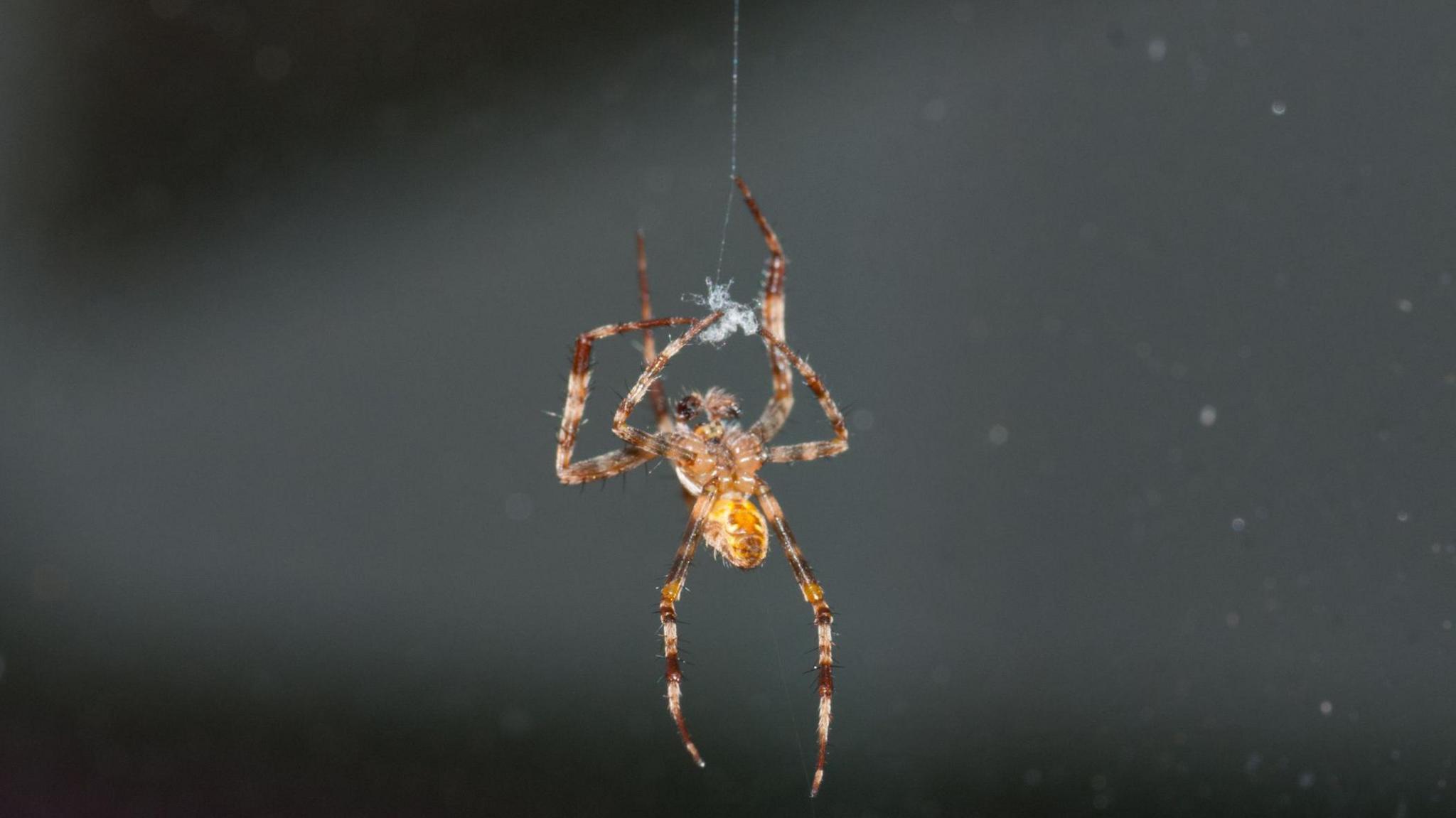
Researchers think that the noise a spider has been exposed to in the past could help shape how well they can adapt their web building abilities.
Brandi Pessman, who is one of the study's authors, said: "Spiders with different experiences with noise - whether they themselves experiences it or their mothers passed it down to them across generations - respond differently."
The noise that we humans create doesn't just affect spiders, it also has an impact on other animals too.
Research from Queen's University in Belfast found that man-made sounds can get in the way of bird song, resulting in a change in their behaviour.
- Published22 August 2024
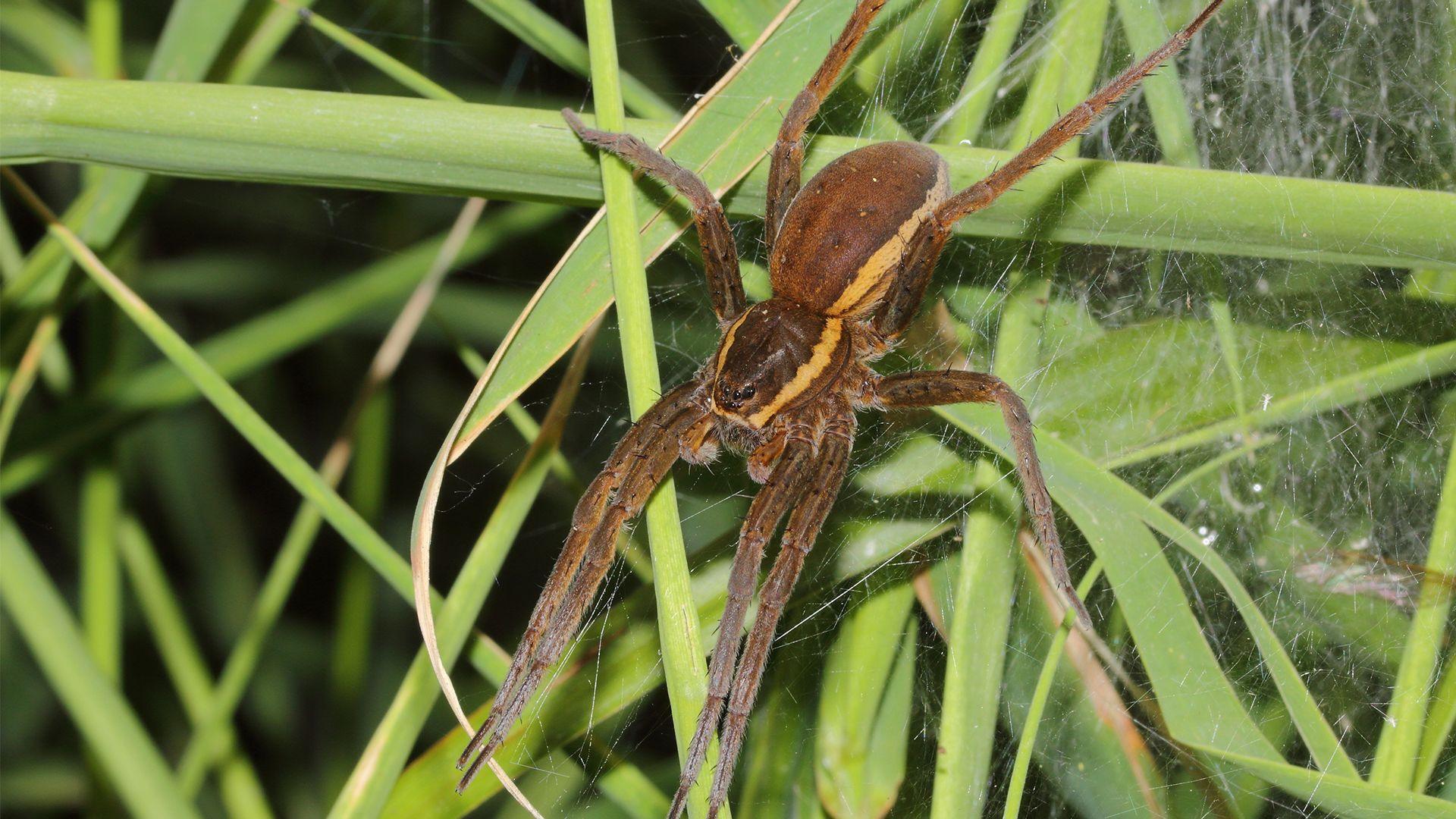
- Published14 January
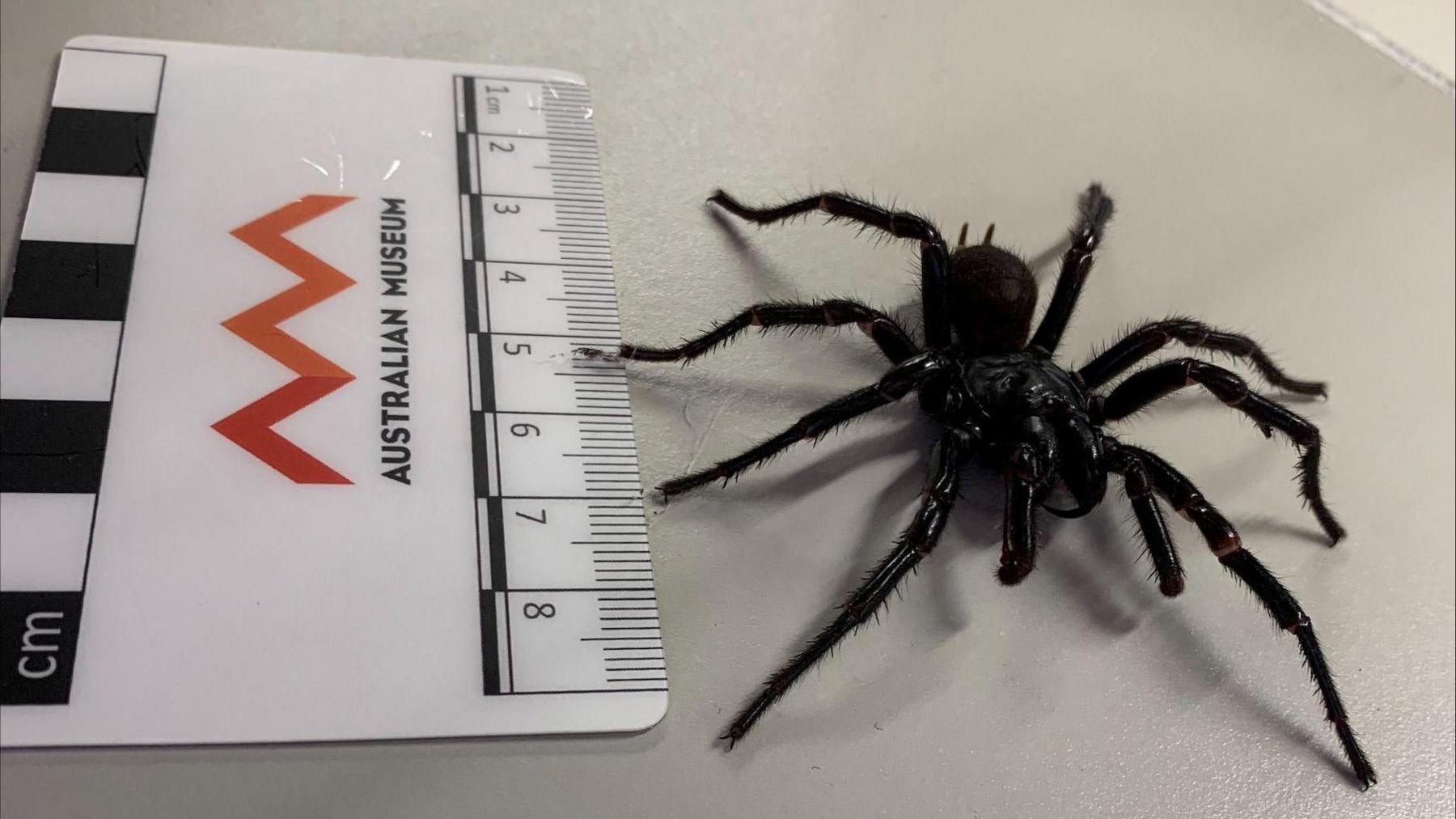
- Published9 January 2021
